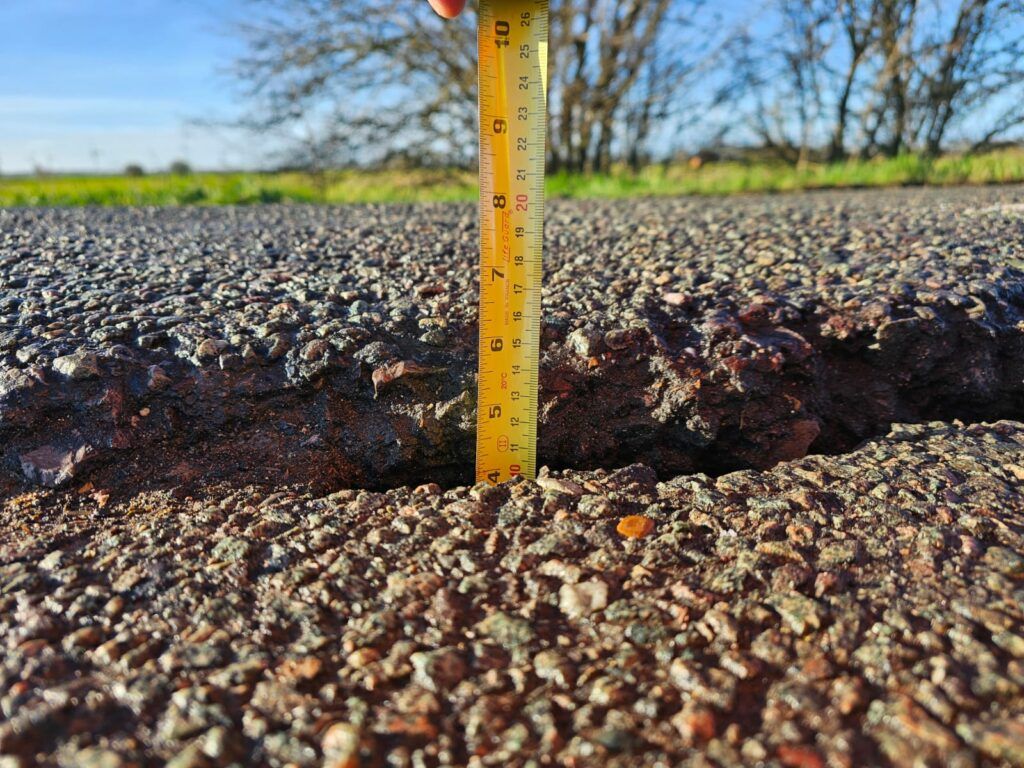A nationwide programme of pothole repairs and road resurfacing projects, made possible by the first tranche of £8.3 billion in reallocated High Speed 2 (HS2) funding, has been revealed – with the first set of roads already having been resurfaced.
Last November, the government announced unprecedented investment to tackle badly surfaced roads and pothole-ridden streets. Councils have already been paid £150 million to get on with the work and deliver improvements, with another £150 million following in this financial year.
As a condition of this funding, and to make sure money is being spent on pothole repairs, local authorities are required to publish a 2-year plan detailing exactly which local roads will benefit.
Today (10 April 2024), the Department for Transport has revealed 102 of the 119 authorities that received funding have responded to the department’s survey request to set out their plans, meaning local people can now check their local council’s websites and scrutinise their plans for themselves.
Among the regions pledging to resurface the highest volume of roads are the West Midlands (600,000 square metres) and East Midlands (350,000 square metres), with plans outlined for problem spots across the country including the:
- A43 at Towcester
- A164 between Beverley and Hessle
- A4146 at Leighton Buzzard
The department has already been clear with those local authorities that have failed to publish reports that they could see the withdrawal of future funding to resurface roads.
The £8.3 billion roads resurfacing funding demonstrates the DfT’s commitment to improve local transport across the country and is the largest ever funding boost for local road improvements, made possible by reallocated HS2funding.
All of the £19.8 billion saved from the northern leg of HS2 will be reinvested in transport across the north, all of the £9.6 billion saved from the Midlands leg will be reinvested in transport across the Midlands, with the £6.5 billion saved through the new approach at Euston being spread across every other region in the country. Projects and improvements in the south and east of England are made possible by savings from Euston.
Transport Secretary, Mark Harper, said:
“We’re on the side of drivers, which is why this government is getting on with delivering our plan to invest an additional £8.3 billion in the biggest ever funding increase for local road improvements, made possible by reallocated HS2 funding.
“Alongside this unprecedented funding, which is already being used to improve local roads, we’re making sure local people can hold their local authority to account and see for themselves how the investment will be spent to improve local roads for years to come.”
Having submitted their first reports last month, councils will now also be required to submit quarterly reports from June 2024, announcing work which has taken place over 3 months, meaning local people will now regularly be able to scrutinise the progress their local authority is making to tackle potholes.
RAC Head of Policy, Simon Williams, said:
“It’s very encouraging to see so many local authorities quickly setting out how they’ll use the first tranche of the government’s reallocated HS2funding to improve their roads.
“Drivers will be pleased to see potholes fixed and roads resurfaced, especially as our research shows the poor state of local carriageways is their number-one concern. We hope councils will also use this extra money to carry out vital surface dressing work which helps prevent cracking in the cold winter months by sealing roads against water ingress. The prime time for this life-extending work is between April and September, so time is of the essence.”
Jonathan Walker, Head of Cities and Infrastructure Policy at Logistics UK, said:
“The allocation of this previously announced funding to repair and maintain local roads is welcome news for our members, who deserve to be able to use a reliable and efficient national infrastructure network to deliver for the economy.
“However, to support the nation’s supply chain and ensure that deliveries can continue to be made on time, it is vital that government provides a longer-term strategy and funding model to reinforce the UK’s transport infrastructure. This would enable long-term maintenance programmes to be put in place, rather than piecemeal allocations of funding that create a stop-start mentality and interruptions to the transport network.”
Rick Green, Chair of the Asphalt Industry Alliance, said:
“The reallocated HS2 funding is a positive step, demonstrating the Government recognises that maintaining local roads is about more than filling in potholes and without this investment – which ramps up in the years ahead – the situation could be even worse.
“We have supported the need for transparency of funding allocations and the requirement for local authorities to report on the local roads to benefit will hopefully ensure the money is not diverted.
“But, as the Government itself says, this additional funding is only enough to resurface 5,000 miles of local roads over 11 years. This sounds like a lot, but it is just 2.7% of the network in England and London, where the funding is being made available, while our 2024 ALARM survey report highlights that there are already 31,000 miles of local roads reported to have less than 5 years’ life remaining.
“It is clear that the additional money, while welcome, is not going to be enough to halt the ongoing decline in conditions. We need to get to the point where local authority highway engineers can plan and proactively carry out repairs and preventative works in the most timely and efficient way to the greatest benefit of all road users.”












